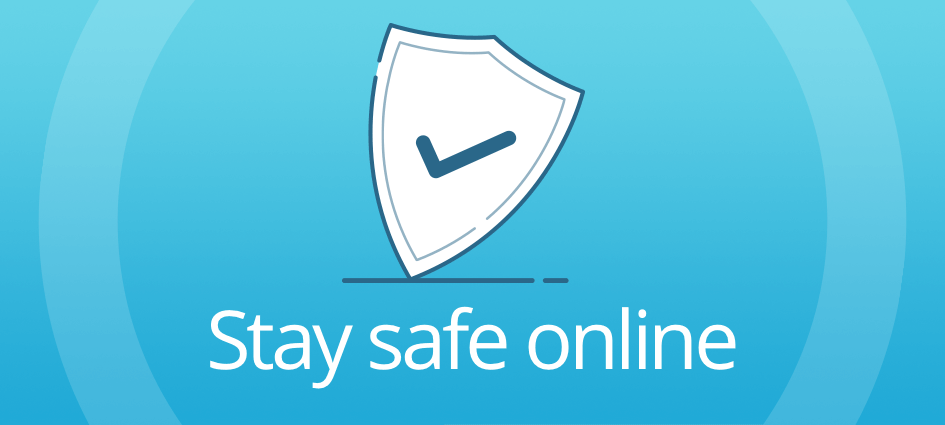With hacks, scams, malware and more, the internet can be seen as a dangerous place nowadays. The recent rise of devices, from smartphones and tablets to devices connected to the Internet, has brought us even greater risks.

Here are some tips to help you get started:
- Generate advanced passwords. We know you've heard it before, but the creation ισχυρών, μοναδικών κωδικών πρόσβασης για όλους τους κρίσιμους λογαριασμούς σας είναι πραγματικά ο καλύτερος τρόπος για να διατηρήσετε τα προσωπικά και οικονομικά στοιχεία σας ασφαλή. Αυτό ισχύει ιδιαίτερα στην εποχή των διαδεδομένων εταιρικών παραβιάσεων, όπου μια παραβίαση βάσης δεδομένων μπορεί να αποκαλύψει δεκάδες χιλιάδες κωδικούς πρόσβασης χρηστών. Εάν επαναχρησιμοποιήσετε τους κωδικούς πρόσβασής σας, ένας εισβολέας μπορεί να πάρει τα δεδομένα που έχουν διαρρεύσει από μία επίθεση και να τα χρησιμοποιήσει για να συνδεθεί στους άλλους λογαριασμούς σας. Οι καλύτερες συμβουλές μας: χρησιμοποιήστε έναν διαχειριστή κωδικών πρόσβασης για να σας βοηθήσουμε να αποθηκεύσετε και να δημιουργήσετε ισχυρούς κωδικούς πρόσβασης για όλους τους λογαριασμούς σας.
- Enhance the security of your network. Now that your login details are more secure, make sure your connections are secure. When you're at home or at work, you probably use a router with a password that encrypts your data. But when you're on the road, you might be tempted to use free, public Wi-Fi. The problem with public Wi-Fi is that it's often not secure. This means that it is relatively easy for a hacker to gain access to device ή τις πληροφορίες σας. Γι ‘αυτό θα πρέπει να εξετάσετε το ενδεχόμενο να επενδύσετε σε ένα εικονικό ιδιωτικό δίκτυο (VPN). Το VPN είναι ένα λογισμικό που δημιουργεί μια ασφαλή σύνδεση μέσω του Διαδικτύου, ώστε να μπορείτε να συνδεθείτε με ασφάλεια από οπουδήποτε.
- Use a firewall. Even if your network is secure, you should use a firewall. This is a electronic εμπόδιο που εμποδίζει τη μη εξουσιοδοτημένη πρόσβαση στους υπολογιστές και τις συσκευές σας και συχνά περιλαμβάνεται με ολοκληρωμένο security software. Using a firewall ensures that all devices connected to your network are secure, including Internet of Things (IoT) devices such as smart thermostats and web cameras. This is important as many IoT devices are not equipped with security measures, giving hackers a vulnerable entry point into your entire network.
- Click smart. Now that you have implemented smart technology measures, make sure you do not pose a risk with careless clicks. Many of today's cyber threats are based on phishing or social engineering. This happens when you disclose personal or sensitive information for fraudulent purposes. Spam, fake "free" offers, click bait, online quizzes and more use these tactics to lure you into clicking on dangerous links or giving up your personal information. Always be careful with offers that sound too good to be true or ask for too much information.
- Become a selective separator. These days, there are many opportunities to share our personal information online. Just be careful what you share, especially when it comes to your identity. This can potentially be used to impersonate you or to guess your passwords and logins.
- Protect your mobile phone. Our laptops can be just as vulnerable to cyber threats as our laptops. In fact, mobile phones face new risks, such as dangerous applications and dangerous links sent via text message. Be careful when clicking, do not reply to messages from strangers and download applications only from official app stores after first reading other users' reviews. Make sure your security software is enabled on your mobile phone, as are your computers and other devices.
- Practice on Safe Surfing & Shopping. When shopping online or visiting websites for online banking or other sensitive transactions, always make sure the website address starts with "https" instead of just "http", and has a padlock icon in the URL field. This means that the site is secure and uses encryption to detect your data so that it cannot be intercepted by others. Also watch out for sites that have misspellings or bad grammar in their URLs. They could be copies of legitimate websites.
- Stay informed. Keep all your software up to date with the latest security updates. Turn on automatic updates so you don't have to think about it and make sure your security software is set to run regular scans.
- Look for the latest scams. Cyber-threats are constantly evolving, so make sure you know what to look out for. Currently, "ransomware" is on the rise. This happens when an attacker threatens to lock you out of all your files unless you agree to pay a ransom. Stay informed of this and other threats by staying informed.
- Keep your safety. Always be careful about what you do on the Internet, the websites you visit and what you share. Use complete security software and make sure you back up your data on a regular basis in case something goes wrong. By taking precautions, you can save yourself from headaches later.





